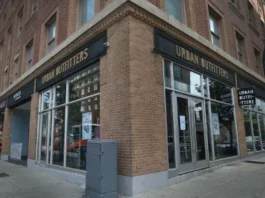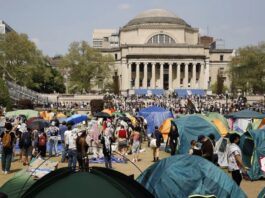Have you ever noticed that nature and the economy seem to follow the same patterns? The cycles of life, like the ebb and flow of animal populations, reflect how the rich and poor interact in society. In fact, we can trace some incredible similarities between the behavior of predators and prey in nature and the rise of wealth in our society.
Let’s take a quick dive into this fascinating comparison:
The Predator-Prey Cycle: A Lesson from Nature
In the wild, animal populations rise and fall in cycles. Picture a group of rabbits thriving in a forest, munching on grass and multiplying. The more rabbits there are, the more foxes can hunt, which causes the fox population to grow. But when the foxes become too numerous and overhunt the rabbits, the rabbit population crashes, and soon, the foxes follow suit.
This natural back-and-forth balance between predator and prey helps maintain a healthy ecosystem. If one side gets too powerful, the system breaks down. The same thing happens in our economy, though we often don’t notice it.
The Working Class: The Rabbits of the Economy
Think of the working class as the rabbits in this cycle. They’re the ones creating value through their hard work — making products, providing services, and keeping the economy moving. Just like rabbits, their actions fuel growth.
The Wealthy: The Foxes in the System
On the other side, we have the wealthy class, much like the foxes in the forest. These individuals often accumulate their wealth through ownership, investments, and control over resources. When the economy is balanced, both groups — the working class and the wealthy — can thrive together. But when the balance shifts too far, trouble follows.
The Great Compression: A Golden Era of Balance
For much of the 20th century, the gap between the rich and poor narrowed. From around 1900 to 1980, especially after the New Deal, working-class wages rose, and their standard of living improved. The government implemented rules and regulations — think labor unions, progressive taxes, and anti-monopoly laws — to keep the “predators” (the super-wealthy) in check.
This period, known as the “Great Compression,” saw a healthy middle class emerge. Families could afford homes, cars, vacations, and retirement. Social mobility was high, and workers were getting their fair share of the economic pie.
The Great Predation: A Shift in Power
But then, in the 1980s, things took a turn. In 1971, a Supreme Court justice named Lewis Powell wrote a memo that urged businesses to fight back against unions and regulations. This memo became a blueprint for a new era where the rich and powerful would reclaim control.
And that’s exactly what happened. With the election of Ronald Reagan in 1981, the rules that kept the wealthy in check began to dissolve. Tax cuts for the rich, deregulation, and the weakening of unions opened the floodgates for the rich to pull more and more wealth from the working class. Between 1980 and 2024, the richest Americans extracted over $50 trillion from the economy, even as productivity continued to rise.
A Shrinking Middle Class
As the rich got richer, wages for the working class stagnated. The benefits of a thriving economy were no longer shared equally. CEOs saw their pay skyrocket, while ordinary workers barely saw an increase. More than half of Americans now live paycheck to paycheck, and many struggle with debt, healthcare costs, and housing affordability.
The Cycle of Inequality: A Looming Crisis
Much like the foxes overhunting the rabbits, the extreme concentration of wealth is starting to cause problems for the wealthy themselves. With less purchasing power among the middle class, demand for goods and services weakens, and the entire economy becomes unstable.
We’re seeing signs of strain everywhere. Young people are rejecting the current economic system, and political polarization is growing. The result? More and more people are looking for someone to blame, and demagogues like Donald Trump are rising in popularity.
Restoring Balance: Learning from Nature and History
But here’s the good news: just like nature finds a way to restore balance, we can, too. By looking back at the policies that worked during the Great Compression — fair taxes, strong worker protections, and limits on corporate power — we can begin to rebuild a more balanced and sustainable economy.
Countries like Germany and Japan have shown us that worker representation on corporate boards and public investment banks can lead to a healthier economy. The idea of sharing wealth more equally — through solutions like universal basic income or profit-sharing — is gaining traction.
Moving from Predation to Partnership
To fix the system, we need to move from predation to partnership. Just like a healthy ecosystem requires balance, a healthy economy needs to ensure that everyone benefits. The rich can still prosper, but they must do so in a way that supports the overall system, not depletes it.
The future isn’t just about high taxes for the wealthy; it’s about creating a system where everyone — from workers to CEOs — can thrive together. We’ve done it before, and we can do it again.
Let’s learn from history, nature, and each other to create a more sustainable, balanced economy for all.












